Ageing Dementia Research (ADR) Alliance
The Ageing Dementia Research Alliance (ADRA) is a collaboration of researchers and clinicians working together to accelerate the progress of dementia research in Queensland. ADRA’s mission is to foster a more interconnected research community, better understand research synergies and collaboration opportunities, facilitate skills development, and enhance research visibility.
The Ageing Dementia Research Alliance is administratively supported by the Clem Jones Centre for Ageing Dementia Research, a University of Queensland Centre within the Queensland Brain Institute.
For any enquiries, and information on how to become a member, please email cjcadradmin@qbi.uq.edu.au
Professor Jürgen Götz

Professor Jürgen Götz (PhD, Dr. habil, FAHMS, GAICD) is Foundation Chair of Dementia Research, Director of the Clem Jones Centre for Ageing Dementia Research at the Queensland Brain Institute (University of Queensland), NHMRC Leadership Fellow and Ultrasound Team Leader. In 2023 he became the Lesleigh Green - Bill and Nancy Green Endowed Chair in Dementia Research. Jürgen Götz performed undergraduate studies at the Biocenter of the University of Basel, before joining the laboratory of Nobel Laureate Georges Köhler to obtain his PhD degree in immunology. Subsequently, he took up postdoctoral positions at UCSF (San Francisco) and Sandoz Ltd (now Novartis, Basel), and worked as Research Group Leader (venia legendi, Dr. habil.) at the University of Zurich (Switzerland). Before taking up his current position, Jürgen Götz was a Professor and Chair of Molecular Biology at the University of Sydney.
Jürgen Götz is a highly cited researcher (Clarivate) and an expert in basic and translational research in Alzheimer’s disease (AD), focusing on the cellular and molecular mechanisms of how Tau and Aβ cause neurodegeneration, using transgenic and cellular models, and exploring low-intensity ultrasound as a novel treatment modality for AD and other brain diseases (>220 publications, including in leading journals such as Science, Cell, Lancet and Neuron; h-index = 86, 27,800+ citations, Google Scholar). Jürgen Götz and his team have built a clinical trial-ready therapeutic ultrasound device and started a first-in-human safety trial in 12 Alzheimer patients (April 2023).
Dr Adam Walker
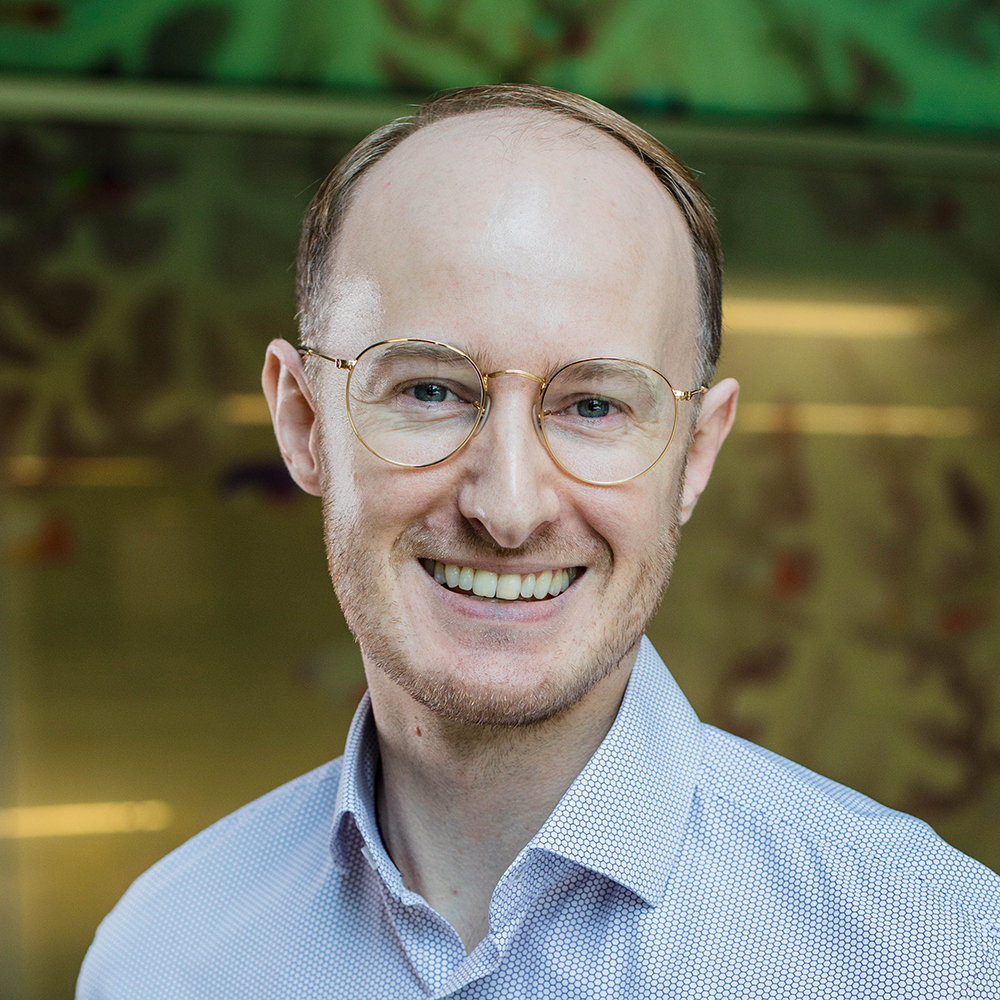 Dr Walker is head of the Neurodegeneration Pathobiology Laboratory and group leader in the Clem Jones Centre for Ageing Dementia Research at the Queensland Brain Institute, The University of Queensland. He collaborates extensively with MND researchers in Australia (QLD, NSW, VIC, TAS, SA, WA) and around the world (Spain, USA, Canada, UK), including two pharmaceutical industry collaborations. Prior to establishing his independent laboratory, Dr Walker’s previous experience includes his PhD focused on the role of cellular stress responses in MND (University of Melbourne), and 4 years as a postdoctoral fellow in the laboratory of Professor Virginia Lee at the University of Pennsylvania. His research is focused on uncovering the molecular mechanisms of neurodegenerative diseases, primarily motor neuron disease (MND)/amyotrophic lateral sclerosis (ALS) and frontotemporal dementia (FTD). Dr Walker’s team uses a wide range of experimental systems, including biochemical and imaging studies of neuronal cell culture and mouse models of disease alongside analyses of human patient samples.
Dr Walker is head of the Neurodegeneration Pathobiology Laboratory and group leader in the Clem Jones Centre for Ageing Dementia Research at the Queensland Brain Institute, The University of Queensland. He collaborates extensively with MND researchers in Australia (QLD, NSW, VIC, TAS, SA, WA) and around the world (Spain, USA, Canada, UK), including two pharmaceutical industry collaborations. Prior to establishing his independent laboratory, Dr Walker’s previous experience includes his PhD focused on the role of cellular stress responses in MND (University of Melbourne), and 4 years as a postdoctoral fellow in the laboratory of Professor Virginia Lee at the University of Pennsylvania. His research is focused on uncovering the molecular mechanisms of neurodegenerative diseases, primarily motor neuron disease (MND)/amyotrophic lateral sclerosis (ALS) and frontotemporal dementia (FTD). Dr Walker’s team uses a wide range of experimental systems, including biochemical and imaging studies of neuronal cell culture and mouse models of disease alongside analyses of human patient samples.
Areas of interest
- Frontotemporal dementia
- Motor neurone disease
- TDP-43
- Mouse models
- Protein aggregation
Professor Alison Mudge

Professor Alison Mudge is a physician researcher who is passionate about improving care of older patients in acute hospital wards and other care settings, including those with cognitive impairment due to dementia and/or delirium. She has led the development, evaluation and scale-up of the Eat Walk Engage program that has been proven to prevent almost half of hospital-associated delirium and has been implemented in18 hospitals throughout Queensland. She leads a multidisciplinary research group at Royal Brisbane and Women's Hospital and the collaborative Delirium Research, Education and Adovacy Metro North (DREAM) team across Metro North Health.
Associate Professor Anthony Angwin
 Associate Professor Anthony Angwin is a speech pathologist with an interest in supporting communication for people living with dementia and their care partners. His expertise ranges from communication partner training, technology co-design to support communication for people living with dementia and their care partners, and use of communication changes associated with dementia.
Associate Professor Anthony Angwin is a speech pathologist with an interest in supporting communication for people living with dementia and their care partners. His expertise ranges from communication partner training, technology co-design to support communication for people living with dementia and their care partners, and use of communication changes associated with dementia.
Areas of interest
- Dementia
- Co-design
- Technology
- Communication
- Language
- Neuroscience
Professor Brenda Gannon
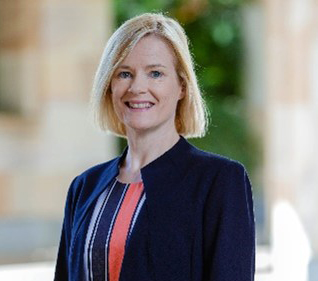
Professor Brenda Gannon is a Professor in the School of Economics and Affiliate Professor at the Centre for the Business and Economics of Health, The University of Queensland and an Affiliate Professor at the Mater Research Institute, The University of Queensland. She is also an affiliate member of CEPAR (ARC Centre for Research Excellence in Population Ageing Research). Since 2022, she is Honorary Adjunct Professor at University of Galway, Ireland. Professor Gannon is an international expert in the field of Health Economics of Ageing and has won over $28 million, as chief investigator, in collaborative research income, with economics, medicine and social science with academia and industry. She has developed a range of projects in Economics of Ageing on topics of physical activity and cognition, health shocks and health care utilization, and consumer directed care and home care. She has worked extensively on interdisciplinary research with gerontologists, clinicians and methodologists. Her work has been influential in the development of programs for falls preventions and informing policy on disability and social inclusion, and has positively impacted on the health of many older people across the world.
Areas of interest:
- Health economics
- Data analysis
- Consumer directed care
- Willingness to pay for dementia programs
Dr Carly Meyer
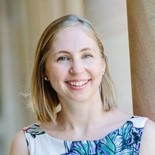 Dr Meyer is a Senior Research Fellow at The University of Queensland and an Honorary Research Fellow at the Centre for Behaviour Change, University College London. She is interested in the development, implementation, and evaluation of complex interventions to improve outcomes for all people living with communication disabilities and their families, including adults with hearing impairment and people with dementia. She is currently managing a MRFF grant that seeks to improve hearing and vision support for people living with dementia in residential aged care.
Dr Meyer is a Senior Research Fellow at The University of Queensland and an Honorary Research Fellow at the Centre for Behaviour Change, University College London. She is interested in the development, implementation, and evaluation of complex interventions to improve outcomes for all people living with communication disabilities and their families, including adults with hearing impairment and people with dementia. She is currently managing a MRFF grant that seeks to improve hearing and vision support for people living with dementia in residential aged care.
Areas of interest
- Hearing rehabilitation
- Dementia
- Aged care
- Behaviour change
- Implementation science
Professor Christine Neville
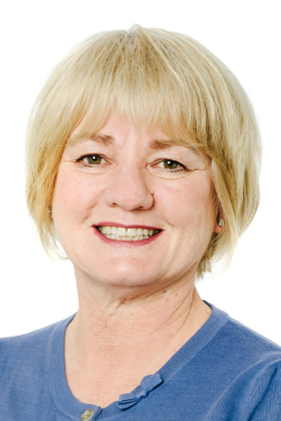
Christine Neville is Professor and Head of the School of Nursing and Midwifery at the University of Southern Queensland. Christine an established research profile in ageing, dementia, mental health and respite care using predominantly quantitative research methods. Her research on the benefits of aquatic exercise for people with dementia particularly its influence in the management of behavioural and psychological symptoms of dementia led to the development of the internationally renowned Watermemories Swimming Club. Specific research interests include family centred counselling for carers of people with dementia, pain in older people with dementia and respite care for older people with dementia. She has a healthy funding and authorship track records.
Areas of interest:
- Management of behavioural and psychological symptoms
- Respite care
- Carer burden
- Pain management
Dr Chrys Pulle
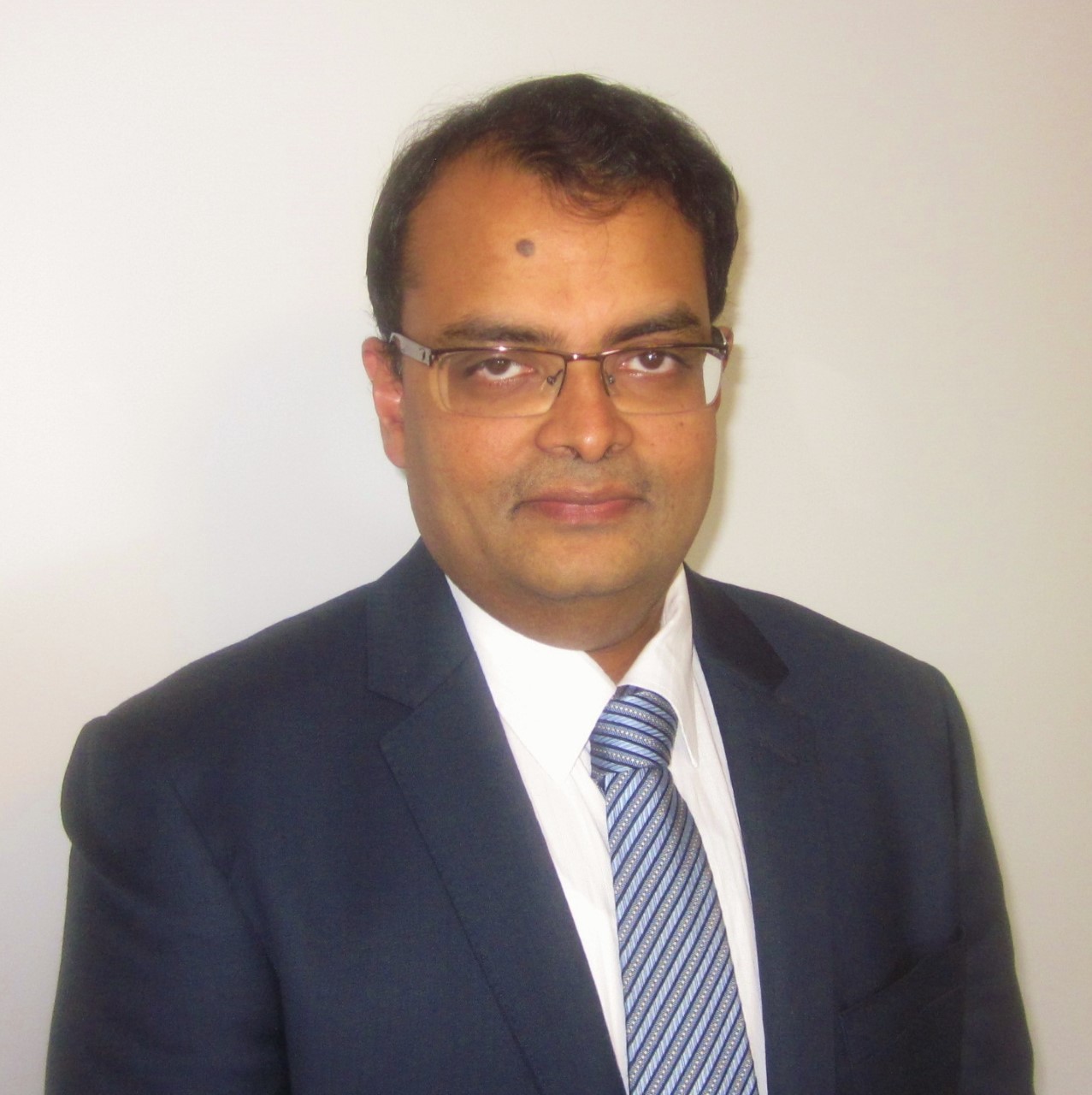 Dr Pulle is currently working in a clinical capacity as a Senior Staff Specialist/Geriatrician at The Prince Charles Hospital. Dr Pulle is a Geriatrician who has been managing patients in the Hip Fracture Unit at The Prince Charles Hospital since its establishment in 2010. Dr Pulle is also a Principal Investigator at The Prince Charles Hospital Internal Medicine and Dementia Research Unit. Over the last 15 years the Research Unit has provided evaluation, diagnosis and treatment recommendations, to patients and caregivers participating in Pharmaceutical Sponsored clinical drug trials with the most recent advances in possible new medications for various Dementia types. Dr Pulle is current Chair of Dementia Trials Australia.
Dr Pulle is currently working in a clinical capacity as a Senior Staff Specialist/Geriatrician at The Prince Charles Hospital. Dr Pulle is a Geriatrician who has been managing patients in the Hip Fracture Unit at The Prince Charles Hospital since its establishment in 2010. Dr Pulle is also a Principal Investigator at The Prince Charles Hospital Internal Medicine and Dementia Research Unit. Over the last 15 years the Research Unit has provided evaluation, diagnosis and treatment recommendations, to patients and caregivers participating in Pharmaceutical Sponsored clinical drug trials with the most recent advances in possible new medications for various Dementia types. Dr Pulle is current Chair of Dementia Trials Australia.
Areas of interest
- Dementia
- Dementia Clinical Trials
- Orthogeriatric care
Associate Professor Cindy Jones

A/Prof Cindy Jones has research expertise in ageing. Her research primarily focuses on social and behavioural science research relating to older people, particularly the alleviation of behavioural and psychological symptoms in people living with dementia. Her work examines the effectiveness of innovative health technology and psychosocial interventions to improve the health and wellbeing of people living with dementia and their family carers; and to enhance care provision by health professionals in aged care. One of her significant research works relates to the improvement of knowledge, attitudes and care practices of health professionals towards the expression of sexuality by people living with dementia to enable the facilitation of a care environment that is supportive of the verbalisation and expression of sexual preference, need and desire by people living with dementia.
Areas of interest:
- Health
- Long-term care
- Ageing
- Dementia
- Sexuality
- Psychosocial interventions
- Technology
- Workforce training and development
Dr Daniel Blackmore

Dr Daniel Blackmore is a senior post-doctoral research fellow in the Bartlett Laboratory at QBI. His research is focused on the ageing brain and developing approaches to slow or even reverse cognitive decline. Dr Blackmore was one of the first to discover the age-associated decrease in neural stem cells. These stem cells are critical as they are able to generate new neurons which are essential for the formation of new memories. Daniel uses mice to study the exact mechanisms involved in these processes. Excitingly, recent work has shown that physical exercise is very effective at increasing neuron number and improving memory in very old animals. This research, which has important implications for a number of real-world endeavours, has formed the basis for a current human exercise study that is investigating if similar interventions can delay the onset of ageing dementia.
Areas of interest:
- The role of physical exercise in improving cognitive function during ageing
Dr Daniel Wadsworth
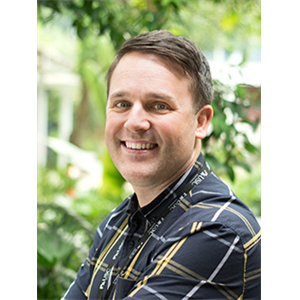 Dr Wadsworth's research is grounded in the provision of accessible and appropriate services to support healthy ageing and wellbeing, drawing on the accessibility of physical activity and considering the influence of exercise technologies, COVID-19 containment, and social connectedness from a physiological, functional, and psychosocial perspective. His research adopts a mixed methods approach to capture user perspectives and inform the considered design and evaluation of appropriate intervention strategies through a multi-disciplinary approach intersecting health, clinical practice, and creative industries. Dan's work is conducted in partnership with local and national industry partners across health, aged care, and local government, with a strong focus on the health and wellbeing of Rural and Regional Australia.
Dr Wadsworth's research is grounded in the provision of accessible and appropriate services to support healthy ageing and wellbeing, drawing on the accessibility of physical activity and considering the influence of exercise technologies, COVID-19 containment, and social connectedness from a physiological, functional, and psychosocial perspective. His research adopts a mixed methods approach to capture user perspectives and inform the considered design and evaluation of appropriate intervention strategies through a multi-disciplinary approach intersecting health, clinical practice, and creative industries. Dan's work is conducted in partnership with local and national industry partners across health, aged care, and local government, with a strong focus on the health and wellbeing of Rural and Regional Australia.
Areas of interest
- Healthy ageing
- Wellbeing
- Accessible physical activity
- Multi-disciplinary mixed methods approach
Dr David Ward
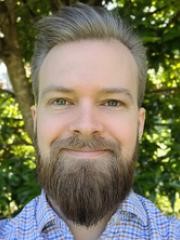 Dr David Ward is a Research Fellow in ageing and geriatric medicine at the Centre for Health Services Research, Faculty of Medicine. David is particularly interested in how people's experiences, behaviours and health conditions can affect their chances of developing dementia as they grow older. A key component of his research is aimed at understanding complex links between ageing frailty, and the brain.
Dr David Ward is a Research Fellow in ageing and geriatric medicine at the Centre for Health Services Research, Faculty of Medicine. David is particularly interested in how people's experiences, behaviours and health conditions can affect their chances of developing dementia as they grow older. A key component of his research is aimed at understanding complex links between ageing frailty, and the brain.
Areas of interest
- Brain health
- Dementia risk factors
- Frailty
Dr Dean Mills
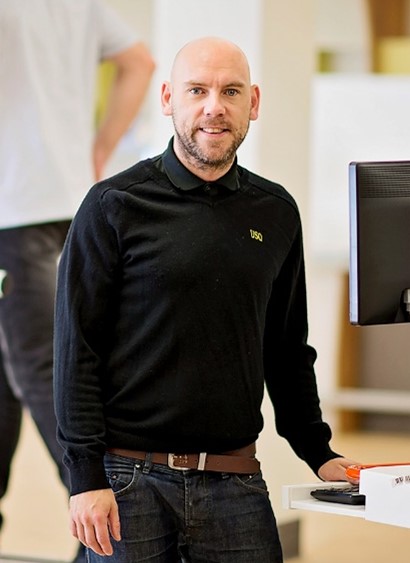 Dr Dean Mills is a senior lecturer in exercise physiology and program director of sport and exercise science at the University of Southern Queensland. His doctorate was undertaken in the field of exercise respiratory physiology at Nottingham Trent University, UK and investigated the effects of respiratory muscle work and inspiratory muscle training on cytokines, oxidative stress, and diaphragm fatigue in healthy human populations. Subsequent postdoctoral training at the Royal Children's Hospital Brisbane investigated novel techniques to measure respiratory function in children with chronic respiratory diseases. Dr Mills is the group leader of gthe Exercise Physiology Research Group. Our research mission is to improve exercise tolerance, respiratory and cerebrovascular function and investigate the mechanisms for this change in athletic, healthy and clinical populations. We design and implement interventions to overcome these limitations and our research uses both whole body testing in humans and basic science involving blood samples.
Dr Dean Mills is a senior lecturer in exercise physiology and program director of sport and exercise science at the University of Southern Queensland. His doctorate was undertaken in the field of exercise respiratory physiology at Nottingham Trent University, UK and investigated the effects of respiratory muscle work and inspiratory muscle training on cytokines, oxidative stress, and diaphragm fatigue in healthy human populations. Subsequent postdoctoral training at the Royal Children's Hospital Brisbane investigated novel techniques to measure respiratory function in children with chronic respiratory diseases. Dr Mills is the group leader of gthe Exercise Physiology Research Group. Our research mission is to improve exercise tolerance, respiratory and cerebrovascular function and investigate the mechanisms for this change in athletic, healthy and clinical populations. We design and implement interventions to overcome these limitations and our research uses both whole body testing in humans and basic science involving blood samples.
Areas of interest
- Exercise physiology
- Respiratory physiology
- Cerebrovascular physiology
- Ageing
Dr Deborah Brooks
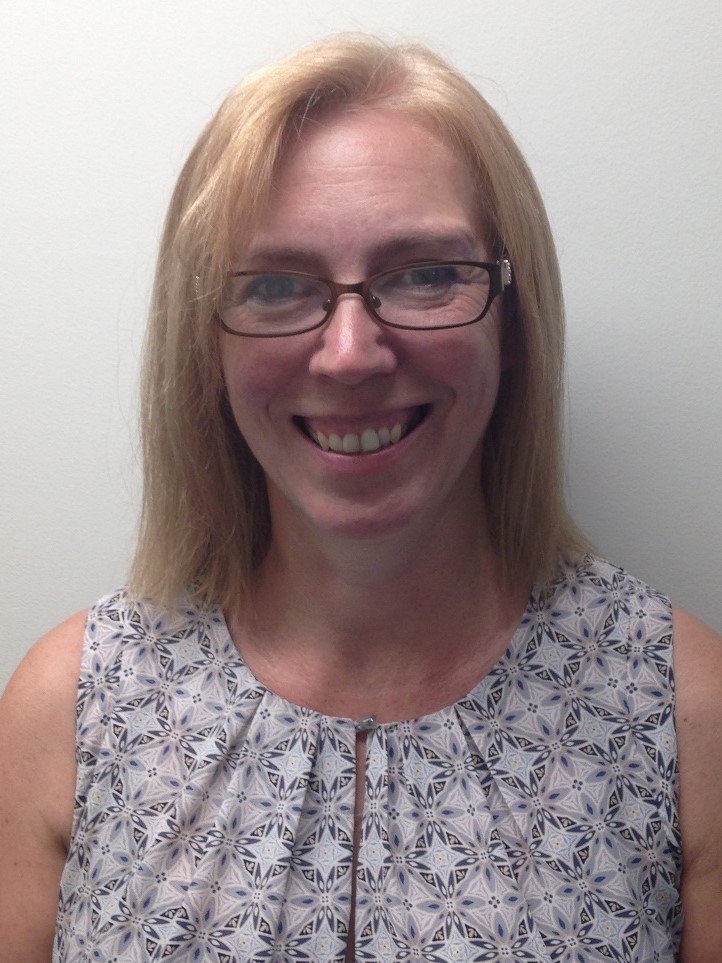 Dr Deborah Brooks is a Postdoctoral Research Fellow at the Dementia and Neuro Mental Health Research Unit (DNMHRU), University of Queensland Centre for Clinical Research. She has a background in psychology and health services research and has been involved in dementia research and service development projects both in Australia and the UK. Research interests include psychosocial interventions to support the mental health of people living with dementia and their family carers within community and residential aged care settings; telehealth, telecare and assistive technologies; knowledge translation and implementation science. She has a record of collaboration with people impacted by dementia, is the coordinator of the Concumer and Community Involvement Group at the DNMHRU, and previously the coordinator of the Lived Experience Group for the Dementia Centre for Research Collaboration.
Dr Deborah Brooks is a Postdoctoral Research Fellow at the Dementia and Neuro Mental Health Research Unit (DNMHRU), University of Queensland Centre for Clinical Research. She has a background in psychology and health services research and has been involved in dementia research and service development projects both in Australia and the UK. Research interests include psychosocial interventions to support the mental health of people living with dementia and their family carers within community and residential aged care settings; telehealth, telecare and assistive technologies; knowledge translation and implementation science. She has a record of collaboration with people impacted by dementia, is the coordinator of the Concumer and Community Involvement Group at the DNMHRU, and previously the coordinator of the Lived Experience Group for the Dementia Centre for Research Collaboration.
Areas of interest:
- Psychosocial interventions
- Mental health
- Residential aged care
- Health services research
- Implementation science
Dr Dhanisha Jhaveri
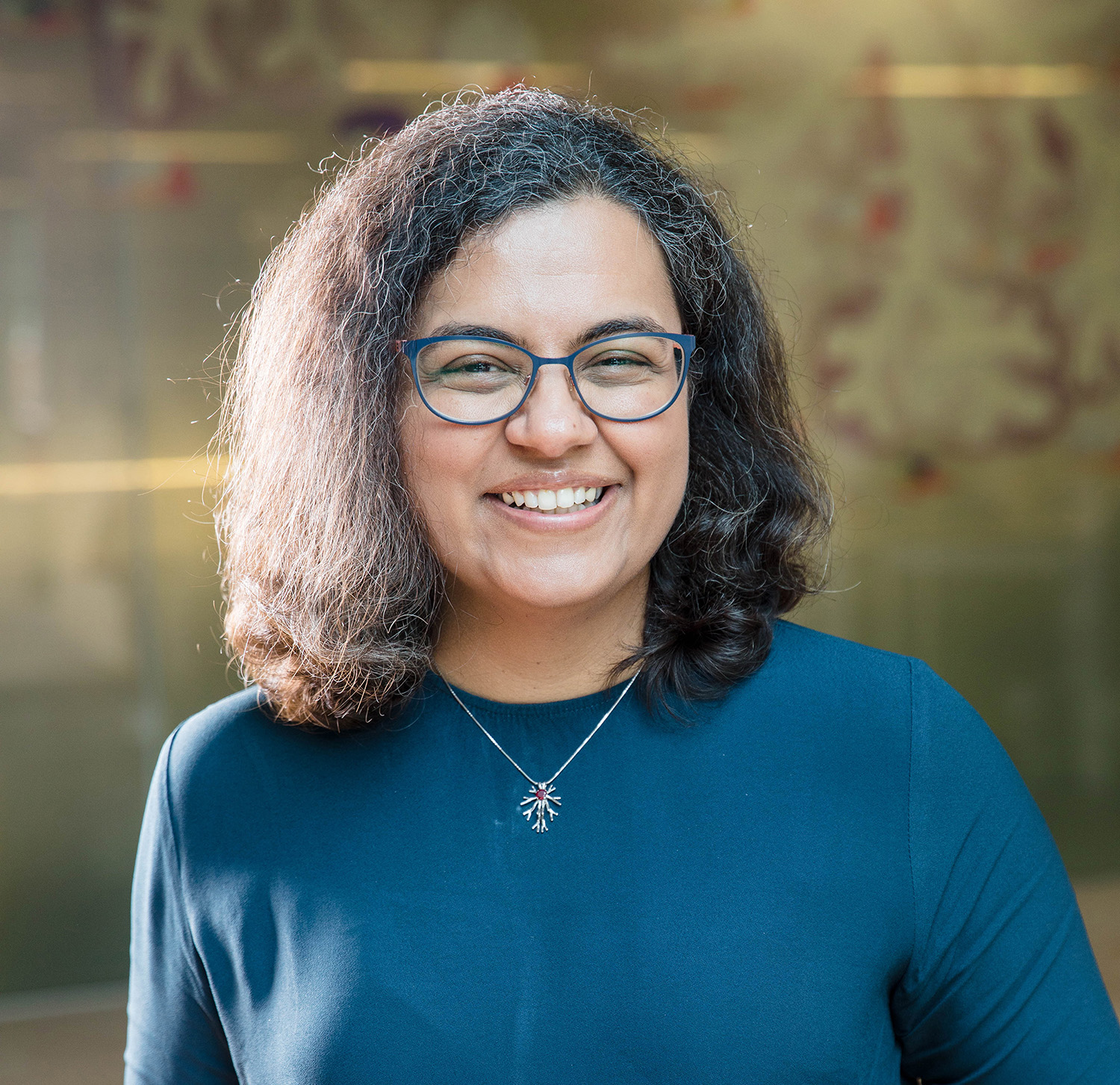 Dr Dhanisha Jhaveri holds a joint appointment at Mater Research and the Queensland Brain Institute (QBI), University of Queensland, and is a Mater Foundation Senior Research Fellow. Her research program investigates fundamental mechanisms driving the production, maturation and integration of new neurons in the adult brain. By combining enquiries at molecular, cellular, circuit, and behavioural levels, they're defining the role of adult neurogenesis in the regulation of emotion and cognitive processes with a key objective to recruit this intrinsic neuroplasticity mechanism to promote resilience to and recovery from stress-induced neuropsychiatric disorders.
Dr Dhanisha Jhaveri holds a joint appointment at Mater Research and the Queensland Brain Institute (QBI), University of Queensland, and is a Mater Foundation Senior Research Fellow. Her research program investigates fundamental mechanisms driving the production, maturation and integration of new neurons in the adult brain. By combining enquiries at molecular, cellular, circuit, and behavioural levels, they're defining the role of adult neurogenesis in the regulation of emotion and cognitive processes with a key objective to recruit this intrinsic neuroplasticity mechanism to promote resilience to and recovery from stress-induced neuropsychiatric disorders.
Areas of interest:
- Adult neurogenesis
- Stress
- Mood regulation
- Cognition
Dr Donna Spooner

I have been working as a Clinical Neuropsychologist since 2004, my primary position being at the Department of Neurology of the Royal Brisbane & Women’s Hospital (RBWH). Within this role, I worked at the RBWH Memory Clinic for more than 10 years conducting comprehensive cognitive assessments of patients presenting with a range of memory/cognitive difficulties. During a three-year stint in Melbourne between 2016-2018, I also worked at St Vincent’s Hospital both in the Department of Neurosciences and the Cognitive, Dementia and Memory Service.
I have also worked in the private sector across a variety of sites. Most recently, I started practice at “Your Brain in Mind”, Westside Hospital, Taringa. This is a multidisciplinary practice focused on early detection and management of dementia, as well as support and education to enhance healthy cognitive ageing. My role here is to conduct neuropsychology assessments for various purposes, including assisting diagnosis of dementia and facilitating decision-making about return to work in the context of acquired brain injury. I also provide support in the implementation of cognitive remediation techniques to enhance everyday memory and other cognitive skills.
My educational background includes a PhD in Clinical Neuropsychology and Clinical Psychology from UQ (2007).
Areas of interest:
- Neuropsychological assessment of dementia — particularly young onset dementia
- The frontotemporal dementias (particularly language variants)
- Cognitive remediation in early dementia/MCI
Dr Edward Bliss
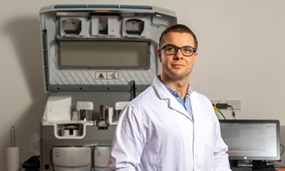
Edward “Teddie” Bliss is a Medical Laboratory Science Lecturer. He is an experienced multidisciplinary Medical Laboratory Scientist with laboratory management experience. He has completed research projects that have determined the effects of supplements in animal models of metabolic syndrome and the effects of interventions, such as exercise, on cerebrovascular function and cognition in populations at risk of developing cognitive decline. His primary research areas are focused on cerebrovascular function and cognition, biomarker analysis and cardiometabolic diseases, as well as interventions that can improve these in those who are at an increased risk of declining cardiovascular and brain health leading to neurodegenerative diseases such as dementia.
Areas of interest:
- Cerebrovascular function
- Cognition
- Clinical trials (prevention/intervention)
Dr Emily Gordon
 Emily Gordon is a Consultant Geriatrician at the Princess Alexandra Hospital where she leads multidisciplinary teams to provide comprehensive geriatric assessment and management to frail older adults in acute and subacute inpatient settings. She is the staff consultant for the Acute Cognitive Unit, which provides inpatient care for patients living with advanced dementia (complicated by changed behaviours) and their families. Emily also works with Professor Ruth Hubbard at The University of Queensland as a Senior Lecturer/Post-Doctoral Research Fellow. Emily's research interests include frailty (pathophysiology, sex differences, outcomes), acute care of frail patients across different medical and surgical disciplines, and care of people with advanced dementia in hospital.
Emily Gordon is a Consultant Geriatrician at the Princess Alexandra Hospital where she leads multidisciplinary teams to provide comprehensive geriatric assessment and management to frail older adults in acute and subacute inpatient settings. She is the staff consultant for the Acute Cognitive Unit, which provides inpatient care for patients living with advanced dementia (complicated by changed behaviours) and their families. Emily also works with Professor Ruth Hubbard at The University of Queensland as a Senior Lecturer/Post-Doctoral Research Fellow. Emily's research interests include frailty (pathophysiology, sex differences, outcomes), acute care of frail patients across different medical and surgical disciplines, and care of people with advanced dementia in hospital.
Areas of interest:
Frailty (sex differences, pathophysiology, patient- and caregiver- identified outcomes); delirium and dementia, psychological symptoms and changed behaviours in advanced dementia.
Professor George Mellick
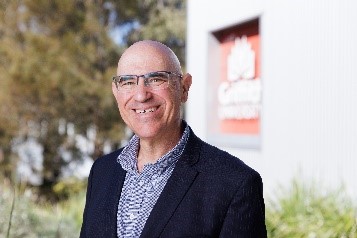 George Mellick is a Professor of Neuroscience and Head of Clinical Neuroscience at Griffith University's Institute for Drug Discovery (GRIDD). He is an interdisciplinary scientist who researches all aspects of neurodegenerative disease with an emphasis on Parkinson's disease and related disorders. He has authored a vast number of research publications and is a regularly sought-after reviewer for International Granting Agencies, Advisory groups and Research Journals. In additon, George has, for many years, been an advocate for people affected by neurological disease and is currently President of Parkinson's Queensland and Chair of Parkinson's Advisory Board.
George Mellick is a Professor of Neuroscience and Head of Clinical Neuroscience at Griffith University's Institute for Drug Discovery (GRIDD). He is an interdisciplinary scientist who researches all aspects of neurodegenerative disease with an emphasis on Parkinson's disease and related disorders. He has authored a vast number of research publications and is a regularly sought-after reviewer for International Granting Agencies, Advisory groups and Research Journals. In additon, George has, for many years, been an advocate for people affected by neurological disease and is currently President of Parkinson's Queensland and Chair of Parkinson's Advisory Board.
Areas of interest:
Parkinson's disease and related disorders
Dr Hanh Dao Tran
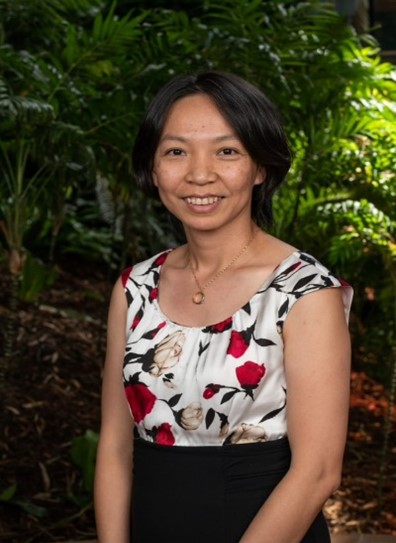 Hanh is an early career nurse researcher who is interested in healthcare for older people in different cultures and contexts.
Hanh is an early career nurse researcher who is interested in healthcare for older people in different cultures and contexts.
Areas of interest:
- Quality of life for people with dementia
- Early diagnosis of dementia
- Health service for people with dementia
- Outcome measurement
- Support for caregivers including formal and informal care givers
Associate Professor Jacki Liddle
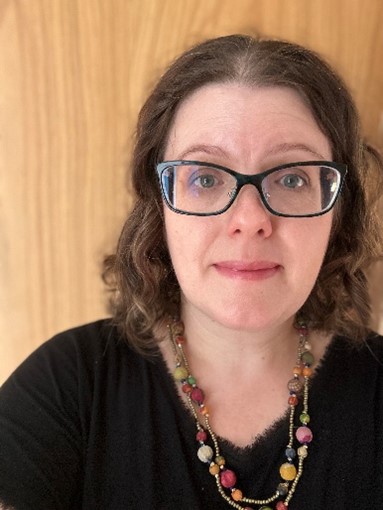 Jacki Liddle is a Research Fellow and Occupational Therapist. She uses innovative technology, along with qualitative and quantitative research methods to investigate the needs and experiences of people living with neurological conditions (dementia, Parkinson's disease, stroke), older people and their caregivers. Currently, she is in a conjoint position with Princess Alexandra Hospital, supporting the development, conduct, and application of research that improves outcomes for patients. She has been involved in developing technology to measure outcomes including lifespace and participation, and codesigning technology to support communciation and participation with people living with dementia and care partners. A/Prof Liddle PhD focused on researching the experiences related to retirement from driving for older people, which led to the development of CarFreeMe program to improve outcomes related to driving cessation. Versions of the program for older drivers, people living with dementia and people with traumatic brain injury have been developed and trialled.
Jacki Liddle is a Research Fellow and Occupational Therapist. She uses innovative technology, along with qualitative and quantitative research methods to investigate the needs and experiences of people living with neurological conditions (dementia, Parkinson's disease, stroke), older people and their caregivers. Currently, she is in a conjoint position with Princess Alexandra Hospital, supporting the development, conduct, and application of research that improves outcomes for patients. She has been involved in developing technology to measure outcomes including lifespace and participation, and codesigning technology to support communciation and participation with people living with dementia and care partners. A/Prof Liddle PhD focused on researching the experiences related to retirement from driving for older people, which led to the development of CarFreeMe program to improve outcomes related to driving cessation. Versions of the program for older drivers, people living with dementia and people with traumatic brain injury have been developed and trialled.
Areas of interest:
- Quality of life
- Community participation
- Life transitions (including driving cessation)
- Participatory/codesign methods
Associate Professor Jana Vukovic
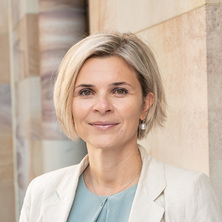
A/Professor Vukovic is a Viertel Senior Medical Fellow and heads the Neuroimmunology and Cognition Laboratory that is investigating the interactions between the brain and the immune system in health and disease. Specifically, her team examines the role of brain’s main resident immune cell population (i.e., microglia), as well as various peripheral immune cells, on learning and memory in mice. They’re interested in defining the contribution of immune cells to cognitive tasks where learning and memory deficits can occur, e.g., following brain injury, cancer treatment, and ageing. The goal of the work is to link cellular and molecular events to altered behaviour, and to harness the brain’s intrinsic regenerative potential for stimulating optimal cognitive function.
Areas of interest:
- Neuroimmunology
- Neuroinflammation
- Microglia
- Cognition
- Learning and memory
Professor Janet Wiles
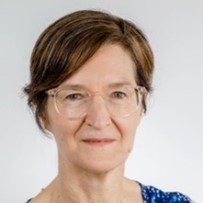 Janet Wiles is a Professor in Human Centred Computing at the University of Queensland and leads the Future Technologies Thread of ARC Centre for Excellence for the Dynamics of Language (CoEDL). Her multidisciplinary team codesigns language technologies to support living with dementia and their carers; new tools to enable Indigenous communities to develop their own speech recognition systems; and social robots for applications in health, education and neuroscience.
Janet Wiles is a Professor in Human Centred Computing at the University of Queensland and leads the Future Technologies Thread of ARC Centre for Excellence for the Dynamics of Language (CoEDL). Her multidisciplinary team codesigns language technologies to support living with dementia and their carers; new tools to enable Indigenous communities to develop their own speech recognition systems; and social robots for applications in health, education and neuroscience.
Areas of interest:
- Language Technologies
- Including working with people living with dementia and their care partners
Dr Kailas Roberts
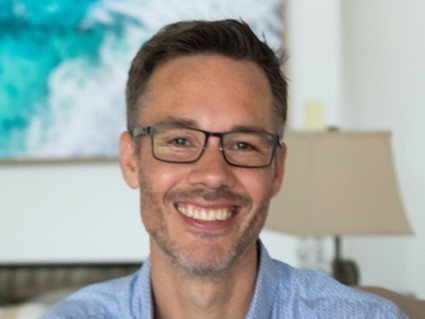
Dr Kailas Roberts is a psychogeriatrician and runs a clinic called Your Brain in Mind. This is a multidisciplinary clinic involving doctors, an OT, a physio, neuropsychologists, a clinical psychologist and a pharmacist. Their aim to support those who want to either prevent/reduce their risk of dementia as well as to provide holistic care to experiencing cognitive decline in addition to their loved ones and carers.
Areas of interest:
- Dementia prevention and treatment
Dr Katarzyna Lion
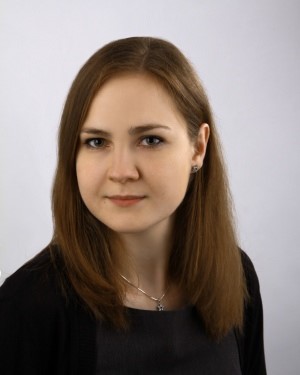 Dr Katarzyna Lion is a Research Fellow at Menzies Health Institute Queensland, Griffith University. Katarzyna's research expertise covers implementation and evaluation of novel and innovative approaches to psychosocial care for people with neurological and psychiatric disorders and their family caregivers, including international collaboration implementing the Dutch Meeting Centres Support Programme in Poland, Italy and the UK. Her PhD thesis investigated the topic of stigmatisation in dementia across European countries: the UK, Poland and Italy at Wroclaw Medical University, Poland.
Dr Katarzyna Lion is a Research Fellow at Menzies Health Institute Queensland, Griffith University. Katarzyna's research expertise covers implementation and evaluation of novel and innovative approaches to psychosocial care for people with neurological and psychiatric disorders and their family caregivers, including international collaboration implementing the Dutch Meeting Centres Support Programme in Poland, Italy and the UK. Her PhD thesis investigated the topic of stigmatisation in dementia across European countries: the UK, Poland and Italy at Wroclaw Medical University, Poland.
Areas of interest:
- Ageing
- Dementia
- Psychosocial intervnetions for people with neurological conditions and their family caregivers
- Stigmatisation
Dr Kim-Huong Nguyen
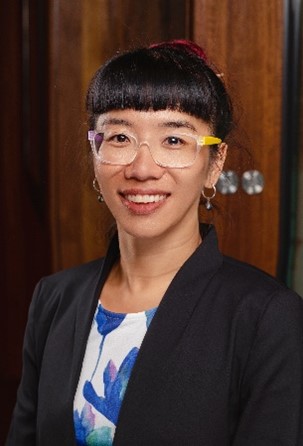 Dr Kim-Huong Nguyen is an economist focusing on brain health, dementia and aged care. She is an Atlantic Fellow for Equity for Brain Health. She applies health economic theories and methods to understand the social and economic values of health and social care. My current activities cover developing and evaluating policies and interventions targeting older population and people with cognitive impairment and brain injury. Evaluation metrics and methods cover the measurement of health outcomes, resource utilisation, productivity and efficiency, and inequality in the health and social care sectors. I work closely with researchers from multiple backgrounds, from engineers to medical professionals and artists, industry organisations and peak bodies, and advocates and consumers of health and social services.
Dr Kim-Huong Nguyen is an economist focusing on brain health, dementia and aged care. She is an Atlantic Fellow for Equity for Brain Health. She applies health economic theories and methods to understand the social and economic values of health and social care. My current activities cover developing and evaluating policies and interventions targeting older population and people with cognitive impairment and brain injury. Evaluation metrics and methods cover the measurement of health outcomes, resource utilisation, productivity and efficiency, and inequality in the health and social care sectors. I work closely with researchers from multiple backgrounds, from engineers to medical professionals and artists, industry organisations and peak bodies, and advocates and consumers of health and social services.
Areas of interest:
- Brain health
- Dementia
- Aged care
- Economics
- Decision making
Dr Kristen Tulloch
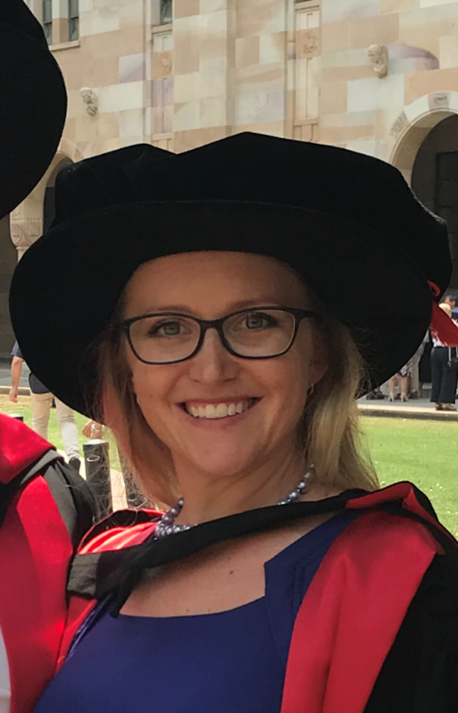 Dr Kristen Tulloch lectures in psychology at UniSC in the School of Health. She joined the school in 2021, following a Postdoctoral Research Fellowship at The University of Queensland and collaborations with universities around Australia. Kris completed her PhD at Macquarie University and her Bachelor of Arts (Psychology) (Honours) at Deakin University. Kris’ research is strongly influenced by positive psychology, or the investigation of positive functioning and strength-based approaches, working with individuals’ values to optimise wellbeing, life satisfaction and performance in pursuits meaningful to the individual. In practice, she has investigated the effect of purposeful gardening for people living with dementia and their care partners, the meaning of a healthy life from the perspective of healthy older people, and community engagement including women’s leisure participation. She has contributed to teams applying family-centred care in audiology, and student-focused research including how student bias against older people can be reduced via research engagement, and the effect of video ethnography on clinical self-efficacy in commencing speech pathology students.
Dr Kristen Tulloch lectures in psychology at UniSC in the School of Health. She joined the school in 2021, following a Postdoctoral Research Fellowship at The University of Queensland and collaborations with universities around Australia. Kris completed her PhD at Macquarie University and her Bachelor of Arts (Psychology) (Honours) at Deakin University. Kris’ research is strongly influenced by positive psychology, or the investigation of positive functioning and strength-based approaches, working with individuals’ values to optimise wellbeing, life satisfaction and performance in pursuits meaningful to the individual. In practice, she has investigated the effect of purposeful gardening for people living with dementia and their care partners, the meaning of a healthy life from the perspective of healthy older people, and community engagement including women’s leisure participation. She has contributed to teams applying family-centred care in audiology, and student-focused research including how student bias against older people can be reduced via research engagement, and the effect of video ethnography on clinical self-efficacy in commencing speech pathology students.
Areas of interest:
- Psychosocial interventions to improve quality of life for people living with dementia and their care partners
- Third-party disability
- Nature-based therapies
- Positive psychology
Dr Laura Stasinowsky
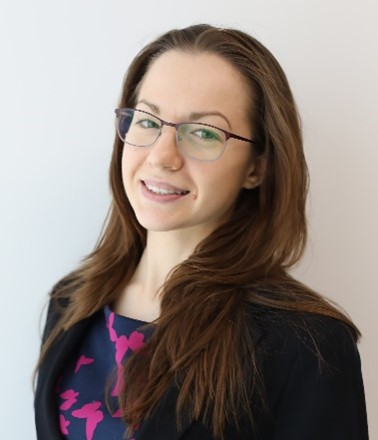
Laura is an occupational therapist, a researcher, and an educator. She is a PhD Candidate and an Associate Lecturer in Occupational Therapy at The University of Queensland. She works as an occupational therapist and dementia consultant within her own company, Alongside You Pty Ltd, and she is professionally connected to Your Brain in Mind (a clinic based within Westside Private Hospital). Laura’s clinical work involves supporting people living with neurocognitive disorders, such as dementia, as well as providing support and advice to the carers and family members of these individuals. Her PhD research is about enhancing the preparedness of occupational therapy graduates for working with people with dementia. Laura enjoys her various work roles; however, she is most passionate about improving the knowledge and understanding of individuals, communities, and broader society about dementia, including how to best support people who are affected (directly and indirectly) by this condition.
Areas of interest:
- Ageing and dementia
- Non-pharmacological approaches for supporting people with dementia and their care partners (i.e., family, friends, and paid aupport persons)
- Training and education about dementia and the care of people living with dementia
- Advocating for the needs of people living with dementia (and their care partners) and for the role of occupational therapy with this population
Dr Leander Mitchell
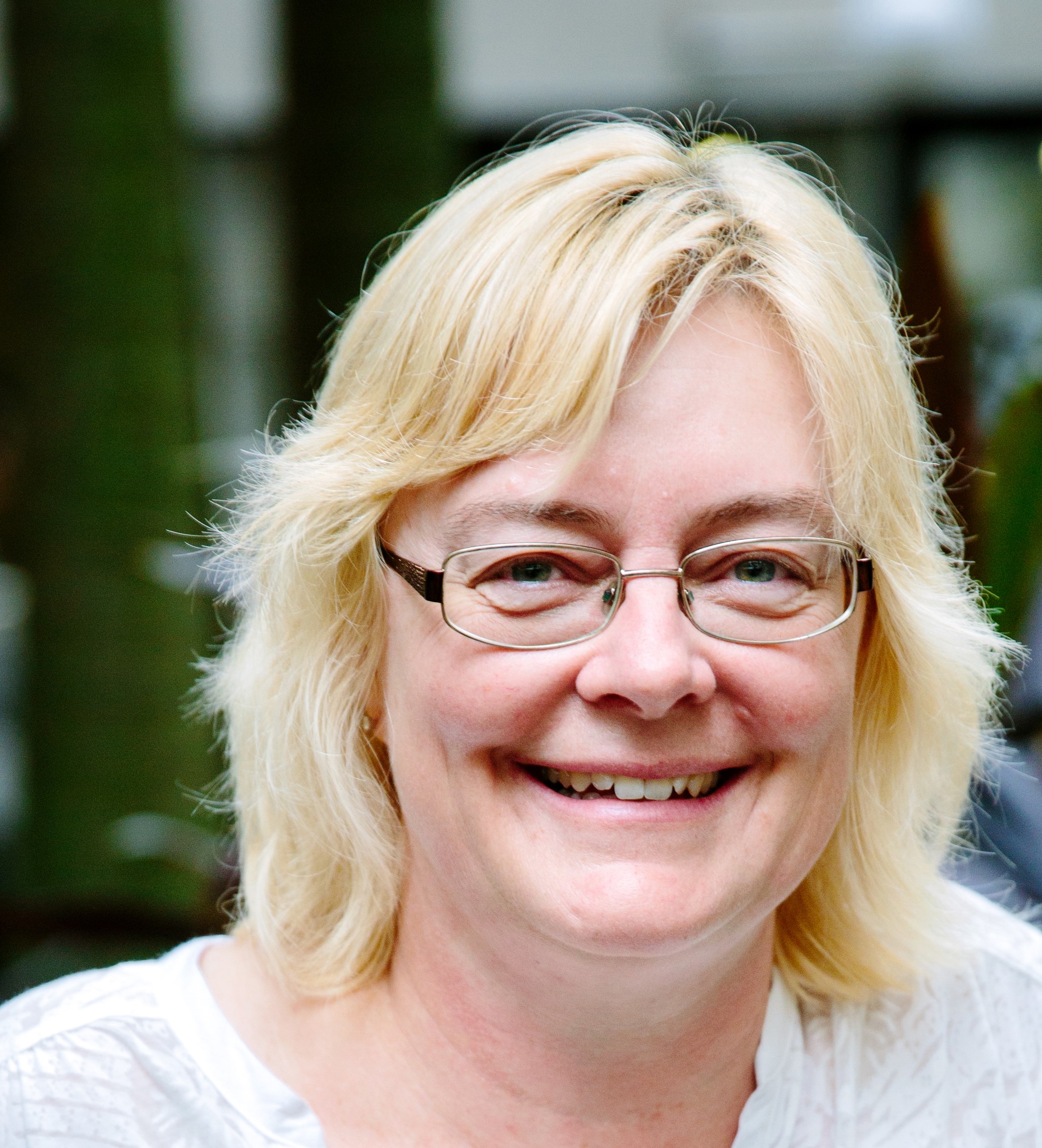 Dr Leander Mitchell is a Senior Lecturer (Clinical Academic) at The University of Queensland (UQ). Her primary role encompasses overseeing the training of postgraduate psychology students during their first internal placement, as well as lecturing on cognitive assessment and older adult topics in particular. Dr Mitchell also offers community-based training on a range of topics focused on working with, and caring for, older adults and their families. Her clinical work includes both therapeutic work and neuropsychological assessment of adults; with a particular focus on assisting older adult clients and their families/carers (both in aged care and community contexts) enhance and scaffold their current circumstances. In terms of research, Dr Mitchell is an early-career researcher focused on older adults, and research themes to date include education and training for professional carers working with people with dementia, rehabilitation in dementia, anxiety in Parkinson’s disease, neuropsychological assessment in dementia and Parkinson’s disease contexts, wisdom in older adulthood, and financial capacity.
Dr Leander Mitchell is a Senior Lecturer (Clinical Academic) at The University of Queensland (UQ). Her primary role encompasses overseeing the training of postgraduate psychology students during their first internal placement, as well as lecturing on cognitive assessment and older adult topics in particular. Dr Mitchell also offers community-based training on a range of topics focused on working with, and caring for, older adults and their families. Her clinical work includes both therapeutic work and neuropsychological assessment of adults; with a particular focus on assisting older adult clients and their families/carers (both in aged care and community contexts) enhance and scaffold their current circumstances. In terms of research, Dr Mitchell is an early-career researcher focused on older adults, and research themes to date include education and training for professional carers working with people with dementia, rehabilitation in dementia, anxiety in Parkinson’s disease, neuropsychological assessment in dementia and Parkinson’s disease contexts, wisdom in older adulthood, and financial capacity.
Areas of interest:
- Dementia
- Neuropsychological assessment
- Training
- Anxiety
- Carer burden and wellbeing
- Reflective practice
- Self-care
Dr Lihui Pu
 Dr Lihui Pu is a Postdoctoral Research Fellow at Menzies Health Institute Queesland, Griffith University. She is a registered nurse specialised in dementia care. Her research focuses on using technologies (e.g., social robots) to support nursing home residents living with dementia using both qualitative and quantitative research methods.
Dr Lihui Pu is a Postdoctoral Research Fellow at Menzies Health Institute Queesland, Griffith University. She is a registered nurse specialised in dementia care. Her research focuses on using technologies (e.g., social robots) to support nursing home residents living with dementia using both qualitative and quantitative research methods.
Areas of interest:
- Dementia care
- Technology
Pain - Long-term care
Dr Lotta Oikari
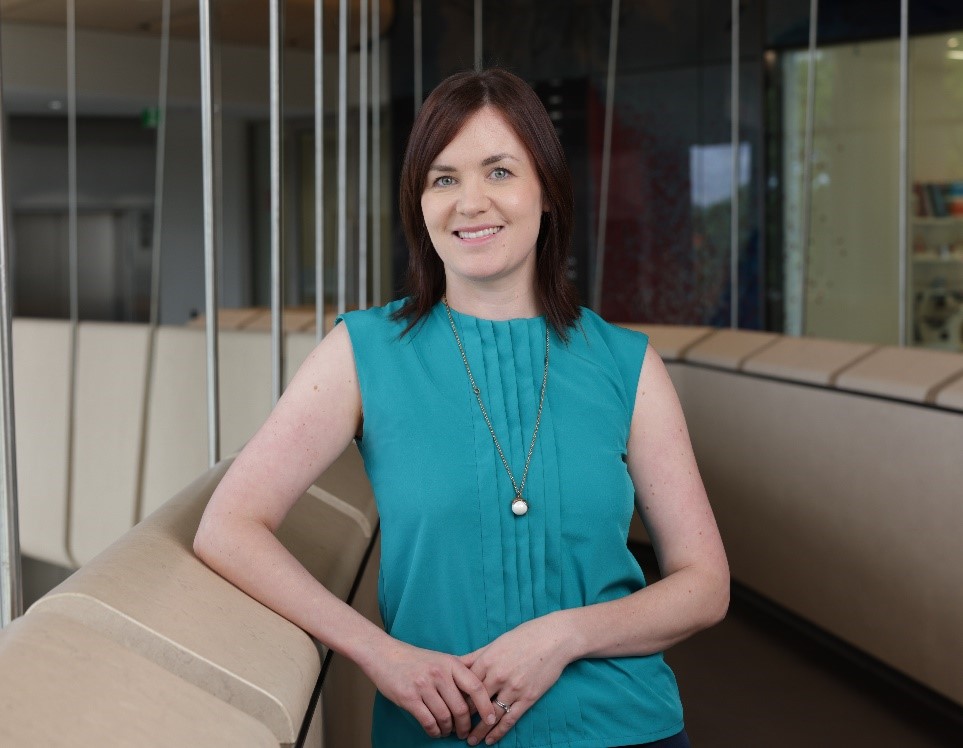 Dr Lotta Oikari obtained her BSc and MSc degrees at University of Turku, Finland after which she moved to Australia to undertake PhD studies. She completed her PhD at the Institute of Health and Biomedical Innovation (IHBI) at Queensland University of Technology (QUT) in 2017 specialising in human neural stem cell models. Following her PhD studies, Dr Oikari started as a post-doctoral researcher in Associate Professor Anthony White’s Cellular and Molecular Neurodegeneration group at QIMR Berghofer where her research focuses on using patient-derived pluripotent stem cells to study neurodegenerative diseases. She has used these cell models to identify Alzheimer’s disease-related changes in the blood-brain barrier (BBB) as well as demonstrated focused ultrasound-mediated therapeutic antibody delivery across the Alzheimer’s BBB in vitro.
Dr Lotta Oikari obtained her BSc and MSc degrees at University of Turku, Finland after which she moved to Australia to undertake PhD studies. She completed her PhD at the Institute of Health and Biomedical Innovation (IHBI) at Queensland University of Technology (QUT) in 2017 specialising in human neural stem cell models. Following her PhD studies, Dr Oikari started as a post-doctoral researcher in Associate Professor Anthony White’s Cellular and Molecular Neurodegeneration group at QIMR Berghofer where her research focuses on using patient-derived pluripotent stem cells to study neurodegenerative diseases. She has used these cell models to identify Alzheimer’s disease-related changes in the blood-brain barrier (BBB) as well as demonstrated focused ultrasound-mediated therapeutic antibody delivery across the Alzheimer’s BBB in vitro.
Areas of interest:
- Alzheimer's disease
- Human pluripotent stem cells
- Stem cell-derived brain cell models
- Blood-brain barrier modelling in vitro
- Drug delivery modelling in vitro
Associate Professor Margaret MacAndrew
 Associate Professor MacAndrew is a Registered Nurse with over thirty years clinical experience. Her most recent clinical experience has been in the care of older people and people with dementia in residential aged care. Since completing her PhD in 2014, she has lectured in the School of Nursing at Queensland University of Technology, and she has developed an independent program of research exploring strategies to improve the health and safety of older people and in particular people with dementia who wander. Findings from this research have been reported in 25 high quality journals, she has an h-index of 10, and she has received $228,000 to progress her program of research. In 2023, Associate Professor MacAndrew started in the role of Director of Dementia Training Australia for Queensland and the Northern Territory where she is leading the development of new programs to improve capacity of health professionals to assess and manage responsive behaviours in dementia.
Associate Professor MacAndrew is a Registered Nurse with over thirty years clinical experience. Her most recent clinical experience has been in the care of older people and people with dementia in residential aged care. Since completing her PhD in 2014, she has lectured in the School of Nursing at Queensland University of Technology, and she has developed an independent program of research exploring strategies to improve the health and safety of older people and in particular people with dementia who wander. Findings from this research have been reported in 25 high quality journals, she has an h-index of 10, and she has received $228,000 to progress her program of research. In 2023, Associate Professor MacAndrew started in the role of Director of Dementia Training Australia for Queensland and the Northern Territory where she is leading the development of new programs to improve capacity of health professionals to assess and manage responsive behaviours in dementia.
Areas of interest:
- Dementia
- Aged care
- Behavioural symptoms of dementia
- Getting lost
- Wandering
Professor Massimo Hilliard
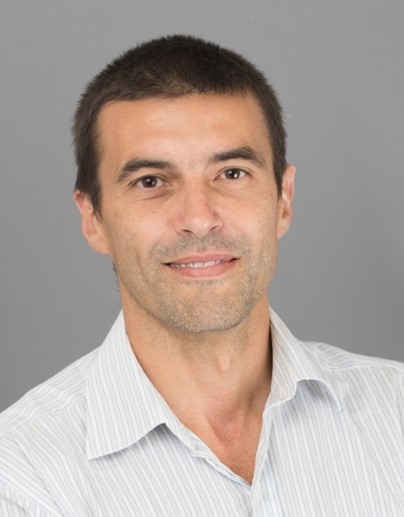 Professor Massimo A. Hilliard received his PhD in Biological Chemistry and Molecular Biology in 2001 from the University of Naples, Italy, working under the supervision of Dr Paolo Bazzicalupo. He then undertook postdoctoral training with Prof William Schafer at the University of California San Diego, and with Prof Cori Bargmann at the University of California San Francisco and The Rockefeller University. In 2007, he was appointed as a Senior Research Fellow at the Queensland Brain Institute, The University of Queensland, Brisbane, where he has established his independent laboratory. He was subsequently awarded an Australian Research Council (ARC) Future Fellowship, and in 2015 was promoted to Associate Professor and awarded a National Health and Medical Research Council (NHMRC) Senior Research Fellowship. In 2019, he was promoted to Professor and in 2020 awarded an NHMRC Investigator Grant. During his career he has focused on understanding the molecular mechanisms that regulate neuronal development, maintenance, and repair, using C. elegans as a model system. His research has been funded by the NIH, NHMRC, and ARC, and his discoveries have been published in top tier journals, including Nature and Science.
Professor Massimo A. Hilliard received his PhD in Biological Chemistry and Molecular Biology in 2001 from the University of Naples, Italy, working under the supervision of Dr Paolo Bazzicalupo. He then undertook postdoctoral training with Prof William Schafer at the University of California San Diego, and with Prof Cori Bargmann at the University of California San Francisco and The Rockefeller University. In 2007, he was appointed as a Senior Research Fellow at the Queensland Brain Institute, The University of Queensland, Brisbane, where he has established his independent laboratory. He was subsequently awarded an Australian Research Council (ARC) Future Fellowship, and in 2015 was promoted to Associate Professor and awarded a National Health and Medical Research Council (NHMRC) Senior Research Fellowship. In 2019, he was promoted to Professor and in 2020 awarded an NHMRC Investigator Grant. During his career he has focused on understanding the molecular mechanisms that regulate neuronal development, maintenance, and repair, using C. elegans as a model system. His research has been funded by the NIH, NHMRC, and ARC, and his discoveries have been published in top tier journals, including Nature and Science.
Areas of interest:
- Axonal degeneration
- Axonal regeneration
- Neuronal development
- Neurodegeneration
Professor Matthew Summers
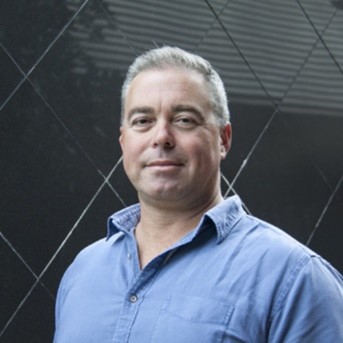 Mathew Summers is Professor of Psychology and Discipline Lead of Psychology in the School of Health at the University of the Sunshine Coast. Mathew is an internationally recognised researcher in the field of aging related cognitive decline, mild cognitive impairment, and dementia. His research spans the areas of early diagnosis, intervention and treatment of aging related cognitive disorders. This involves collaborations with international research teams on innovative projects developing technological solutions and working in the development and application of artificial intelligence and deep machine learning solutions to changes in cognitive, physical, psychological and social function in aging adults. Mathew is a registered Clinical Neuropsychologist with over 25 years clinical experience and is a Fellow of the APS College of Clinical Neuropsychologists. He is past Program Chair and current Executive Member of the Alzheimer’s Association International Society to Advance Alzheimer Research and Treatment (ISTAART) Cognition Professional Interest Area
Mathew Summers is Professor of Psychology and Discipline Lead of Psychology in the School of Health at the University of the Sunshine Coast. Mathew is an internationally recognised researcher in the field of aging related cognitive decline, mild cognitive impairment, and dementia. His research spans the areas of early diagnosis, intervention and treatment of aging related cognitive disorders. This involves collaborations with international research teams on innovative projects developing technological solutions and working in the development and application of artificial intelligence and deep machine learning solutions to changes in cognitive, physical, psychological and social function in aging adults. Mathew is a registered Clinical Neuropsychologist with over 25 years clinical experience and is a Fellow of the APS College of Clinical Neuropsychologists. He is past Program Chair and current Executive Member of the Alzheimer’s Association International Society to Advance Alzheimer Research and Treatment (ISTAART) Cognition Professional Interest Area
Areas of interest:
- Neuropsychological and EEG markers for Mild Cognitive Impairment as a preclinical phase for Alzheimer's disease
- Cognitive interventions in healthy ageing and mild cognitive impairment
Dr Merja Joensuu
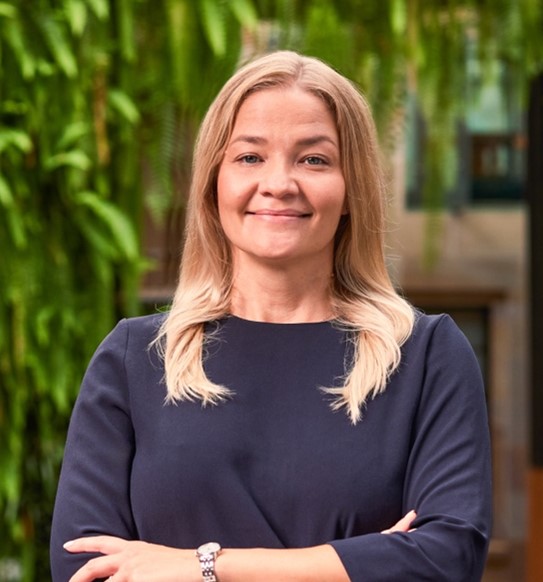
The dynamic equilibrium of membrane proteins and lipids at the cell surface and intracellular organelles is a critical factor for healthy brain. Dr Merja Joensuu’s research group studies lipid and protein factors governing the secretory pathway dynamics and synaptic membrane trafficking. The group is particularly interested in studying cognitive dysfunction in recessive hereditary spastic paraplegias, and the molecular mechanisms of neurointoxication and viral infections, as well as repurposing small molecule inhibitors to combat these conditions. The group uses advanced imaging techniques such as live cell super-resolution imaging and high-resolution electron microscopy, and a range of cell biological techniques, to understand the molecular mechanisms regulating cellular membrane dynamics. Understanding how neurons function in healthy brain is critical for discovering novel therapeutic strategies for the treatment of disease, viral infections and neurointoxication pathologies.
Areas of interest:
- Cellular mechanisms of memory and learning
- Neuroparalysis
- Viral infections
Dr Mia Schaumberg
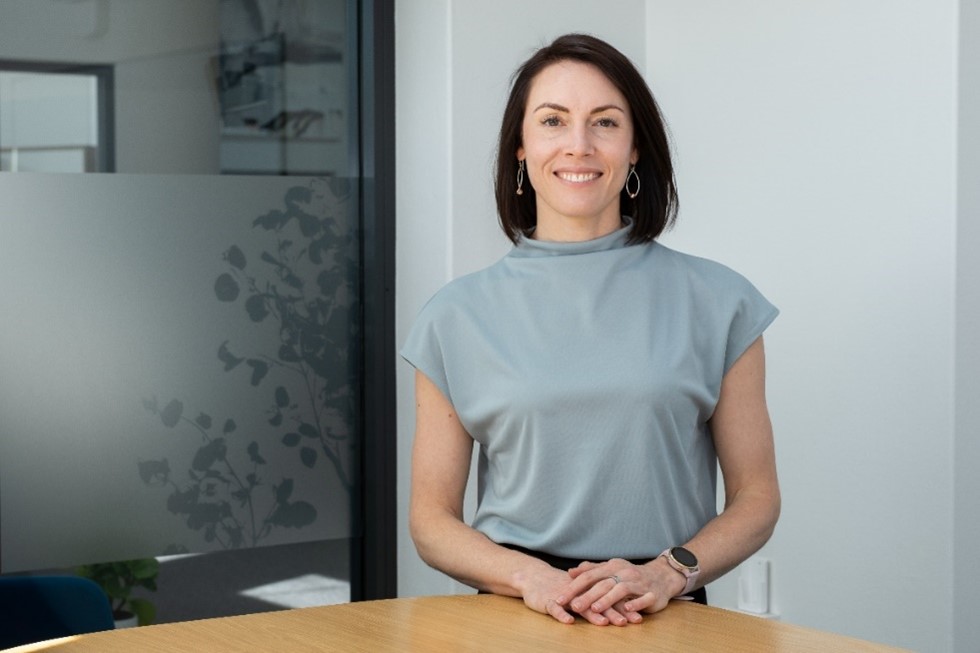 Dr. Mia Schaumberg leads the Active Ageing Research Group at the University of the Sunshine Coast (UniSC), where she focusses on optimising lifestyle intervention (exercise, physical activity, diet) to reduce the risk of cognitive decline and dementia in later life and help people to engage in their communities, create memories and live well for longer. Her multidisciplinary team works to i) understand mechanisms and biomarkers underpinning healthy ageing, ii) improve health behaviours and outcomes through rigorously designed research trials, and iii) engage with community, government, and stakeholders to improve research impact.
Dr. Mia Schaumberg leads the Active Ageing Research Group at the University of the Sunshine Coast (UniSC), where she focusses on optimising lifestyle intervention (exercise, physical activity, diet) to reduce the risk of cognitive decline and dementia in later life and help people to engage in their communities, create memories and live well for longer. Her multidisciplinary team works to i) understand mechanisms and biomarkers underpinning healthy ageing, ii) improve health behaviours and outcomes through rigorously designed research trials, and iii) engage with community, government, and stakeholders to improve research impact.
Mia is an advocate for Australia to become a leader in dementia prevention through multilayered, interdisciplinary approaches across the lifespan. Mia contributes to national dementia prevention research direction through leadership of several dementia prevention special interest groups, development of local health policy such as the Primary Healthcare Network Older Persons Health Strategy), and engagement with local government. She holds a Visiting Senior Research Fellowship at The University of Queensland. She collaborates with the UQ Centre for Exercise and Healthy Brain Ageing at the Queensland Brain Institute where she competed her postdoctoral training. Mia is the UniSC Chief Investigator for the Manna Institute, with a focus on improving mental health outcomes of older people in rural, regional, and remote communities, where she developed and leads the Regional Australia Dementia Research (RADAR) Hub.
Areas of interest:
- Exercise and lifestyle modifications for dementia prevention
- Dementia prevention strategies across the menopause transition
Associate Professor Michelle Lupton
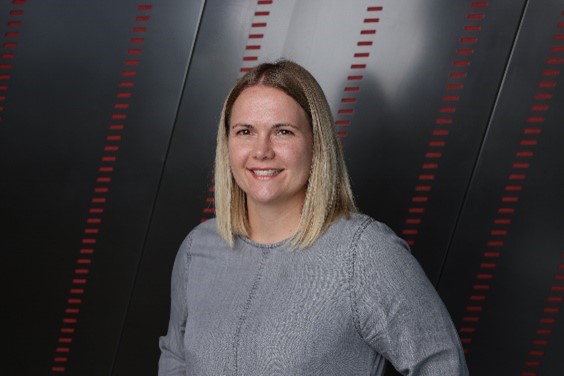 A/Prof Michelle Lupton is a Senior Research Officer at QIMR Berghofer Medical Research Institute where she co-leads the PISA (Prospective Imaging Study of Aging) cohort study. She is an NHMRC Boosting Dementia Leadership Fellow, CI on an NHRMC Boosting Dementia Research Initiative Team Grant, and an MRFF Dementia, Ageing and Aged Care Mission scheme grant. Michelle specialises in Alzheimer’s disease genome-wide genetic association studies, neuroimaging genetics, genetic risk prediction, and Mendelian Randomisation analysis. Core aims are to improve understanding of the early effect of AD genetic risk factors, identify early disease and prodromal biomarkers and identify casual relationships between potential modifiable risk factors and AD.
A/Prof Michelle Lupton is a Senior Research Officer at QIMR Berghofer Medical Research Institute where she co-leads the PISA (Prospective Imaging Study of Aging) cohort study. She is an NHMRC Boosting Dementia Leadership Fellow, CI on an NHRMC Boosting Dementia Research Initiative Team Grant, and an MRFF Dementia, Ageing and Aged Care Mission scheme grant. Michelle specialises in Alzheimer’s disease genome-wide genetic association studies, neuroimaging genetics, genetic risk prediction, and Mendelian Randomisation analysis. Core aims are to improve understanding of the early effect of AD genetic risk factors, identify early disease and prodromal biomarkers and identify casual relationships between potential modifiable risk factors and AD.
Areas of interest:
- Genetic epidemiology of Alzheimer's disease
Associate Professor Nadeeka Dissanayaka
 A/Prof Nadeeka Dissanayaka is an internationally recognised leader in Ageing, Mental Health and Neurodegenerative disorders, with extensive experiences in conducting large-scale clinical research. She is a NHMRC Boosting Dementia Research Leadership Fellow, and is founder and director of the Dementia and Neuro Mental Research Unit at University of Queensland Centre for Clinical Research (UQCCR). She is the lead investigator for 2 current MRFF grants (>$3.6 million) for dementia research. A/Prof Dissanayaka co-chairs the Australian Dementia Research Network Early to Mid- Career Researcher Accelerator Group. She established and leads the UQCCR Consumer and Community Involvement Committee and directs the UQ Dementia Friendly Initiative. In recognition of her engagement with the community, she received the Lions Medical Research Foundation Prof Ian Frazer Humanitarian Award in 2019. A/Prof Dissanayaka has established collaborations and partnerships with 50+ institutes, health services, aged care and technology industry, and community organisations in Australia and worldwide. A/Prof Dissanayaka received the UQ Faculty of Medicine Future Leaders Award in 2021.
A/Prof Nadeeka Dissanayaka is an internationally recognised leader in Ageing, Mental Health and Neurodegenerative disorders, with extensive experiences in conducting large-scale clinical research. She is a NHMRC Boosting Dementia Research Leadership Fellow, and is founder and director of the Dementia and Neuro Mental Research Unit at University of Queensland Centre for Clinical Research (UQCCR). She is the lead investigator for 2 current MRFF grants (>$3.6 million) for dementia research. A/Prof Dissanayaka co-chairs the Australian Dementia Research Network Early to Mid- Career Researcher Accelerator Group. She established and leads the UQCCR Consumer and Community Involvement Committee and directs the UQ Dementia Friendly Initiative. In recognition of her engagement with the community, she received the Lions Medical Research Foundation Prof Ian Frazer Humanitarian Award in 2019. A/Prof Dissanayaka has established collaborations and partnerships with 50+ institutes, health services, aged care and technology industry, and community organisations in Australia and worldwide. A/Prof Dissanayaka received the UQ Faculty of Medicine Future Leaders Award in 2021.
Areas of interest:
- Ageing
- Mental Health
- Neurodegenerative disorders
Dr Nancy A. Pachana
 Dr Nancy A. Pachana is Professor of Clinical Geropsychology in the School of Psychology, and Director, Healthy Ageing Initiative, at The University of Queensland. She is co-director of the UQ Ageing Mind Initiative, and program lead for UQ’s Age Friendly University Initiatives. She has an international reputation in geriatric mental health, and has published over 300 peer-reviewed articles, book chapters and books. Nancy was elected a Fellow of the Academy of Social Sciences in Australia in 2014. In 2019, she was awarded the M. Powell Lawton Award, the American Psychological Association’s Society of Clinical Geropsychology Lifetime Achievement Award.
Dr Nancy A. Pachana is Professor of Clinical Geropsychology in the School of Psychology, and Director, Healthy Ageing Initiative, at The University of Queensland. She is co-director of the UQ Ageing Mind Initiative, and program lead for UQ’s Age Friendly University Initiatives. She has an international reputation in geriatric mental health, and has published over 300 peer-reviewed articles, book chapters and books. Nancy was elected a Fellow of the Academy of Social Sciences in Australia in 2014. In 2019, she was awarded the M. Powell Lawton Award, the American Psychological Association’s Society of Clinical Geropsychology Lifetime Achievement Award.
Areas of interest:
- Healthy ageing
- Innovative nursing home interventions
- Driving in later life
Dr Peter Worthy
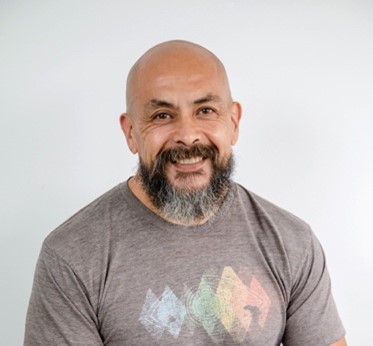 am a Post-doctoral (Early Career, PhD awarded 2020) Researcher with a background in Interaction Design with a focus on Human-centred Design and Co-design. I am is currently working on two projects designing new technologies: (1) to support the delivery of a psychotherapeutic intervention to people living with dementia, and (2) to support motivation and adherence to self-managed therapy for people living with chronic aphasia. I was previously the design specialist on the Florence Project supporting the communication needs of people living with dementia (ARC Centre of Excellence for the Dynamics of Language - CoEDL). I also have qualifications and experience in Law and Science (Exercise Physiology/Functional Anatomy) as well as experience in teaching and learning research.
am a Post-doctoral (Early Career, PhD awarded 2020) Researcher with a background in Interaction Design with a focus on Human-centred Design and Co-design. I am is currently working on two projects designing new technologies: (1) to support the delivery of a psychotherapeutic intervention to people living with dementia, and (2) to support motivation and adherence to self-managed therapy for people living with chronic aphasia. I was previously the design specialist on the Florence Project supporting the communication needs of people living with dementia (ARC Centre of Excellence for the Dynamics of Language - CoEDL). I also have qualifications and experience in Law and Science (Exercise Physiology/Functional Anatomy) as well as experience in teaching and learning research.
Areas of interest:
- Technology design
- Assistive technology
Professor Piers Dawes
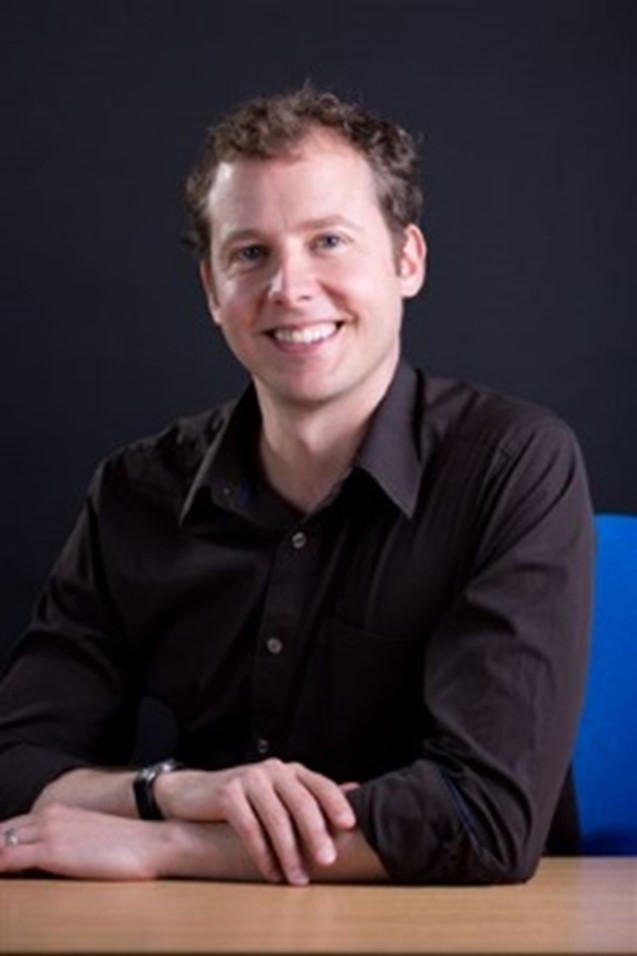
My research concerns i) understanding causes and impacts of hearing and vision impairment, particularly in the context of dementia, ii) prevention and treatment of hearing/vision impairment, and iii) hearing/vision service development and evaluation. My research involves epidemiological modelling with population data sets, clinical trials and hearing health policy.
Recent projects include an EU Horizon 2020 grant of €6.2 million (as joint PI for “Ears, Eyes and Mind: The “SENSE-Cog Project” to improve mental well-being for elderly Europeans with sensory impairment”), an AUD$1.2 million NHMRC Medical Research Future Fund award (as CI for “SENSEcog aged care: Hearing and vision support to improve quality of life for people living with dementia in residential aged care”), an AUD$1.4 million NHMRC Medical Research Future Fund aware (as CI for “Home hearing and vision care to improve quality of life for people with dementia and carers”) and an AUD$0.9 million NHMRC targeted hearing research award (as CI for "Improving access to the hearing services program for people from culturally and linguistically diverse backgrounds").
My research is cited in the 2020 Lancet report on dementia prevention and care and the WHO guidelines ‘Risk reduction of cognitive decline and dementia’. I co-authored the first international guidelines on assessment and management of hearing/vision impairment for people with dementia and development and publication of alternative versions of the Montreal Cognitive Assessment (internationally the most used cognitive screening test) for people with hearing or vision impairment.
My work on developing European networks for consumer and community involvement (CCI) of older adults with lived experience of hearing/vision and dementia to inform multi-centre health research was identified for a keynote presentation to open the 2018 INVOLVE (the UK NIHR CCI organization) CCI conference and is cited as a gold standard example by the European INTERDEM initiative to guide integrated biomedical and psychosocial dementia research.
Areas of interest:
- Dementia
- Hearing loss
- Vision impairment
- Quality of life
- Aged care
Dr Ruth Hubbard
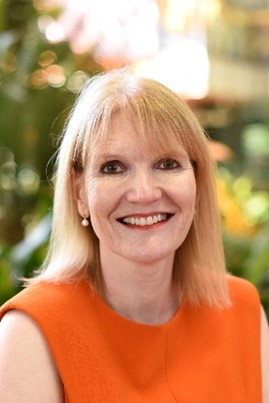 Ruth E. Hubbard is a Consultant Geriatrician at the Princess Alexandra Hospital, Brisbane and the Masonic Chair in Geriatric Medicine at the University of Queensland. She is currently supervising 6 clinicians undertaking PhDs as well as numerous student projects. In the last 5 years, she has has generated $19.9M in grant income: including as CIA on the recent MRFF Dementia Ageing and Aged Care Mission ($5M), a Centre for Research Excellence in Frailty ($2.5M), an Ideas Grant ($1.6M) and the NHMRC Targeted Call for Frailty Research ($1.5M).
Ruth E. Hubbard is a Consultant Geriatrician at the Princess Alexandra Hospital, Brisbane and the Masonic Chair in Geriatric Medicine at the University of Queensland. She is currently supervising 6 clinicians undertaking PhDs as well as numerous student projects. In the last 5 years, she has has generated $19.9M in grant income: including as CIA on the recent MRFF Dementia Ageing and Aged Care Mission ($5M), a Centre for Research Excellence in Frailty ($2.5M), an Ideas Grant ($1.6M) and the NHMRC Targeted Call for Frailty Research ($1.5M).
Areas of interest:
- Frailty
- Sex differences
- Management of BPSD
Professor Sally Bennett

Sally Bennett is a Professor in Occupational Therapy in the School of Health and Rehabilitation Sciences. Her research interests are in knowledge translation, implementation science, care of people with living with dementia and their carers, and evidence-based practice. Sally is a Fellow of the Occupational Therapy Australia Research Academy (FOTARA) that recognises sustained exemplary and impactful contribution to occupational therapy research.
Sally's interest in knowledge translation and evidence-based practice extends to research, teaching and service roles both nationally and internationally, and she has co-lead a number of knowledge translation capacity building initiatives. She is lead investigator on a large NHMRC Boosting Dementia Grant together with colleagues from Australia and the USA, and an investigator on a MRFF Dementia Aging and Aged Care Mission Grant.
Areas of interest:
- Knowledge translation and implementation science
- Care of people living with dementia and their carers
- Occupational therapy
- Evidence-based practice
- Aged care
Dr Sarah Wallace
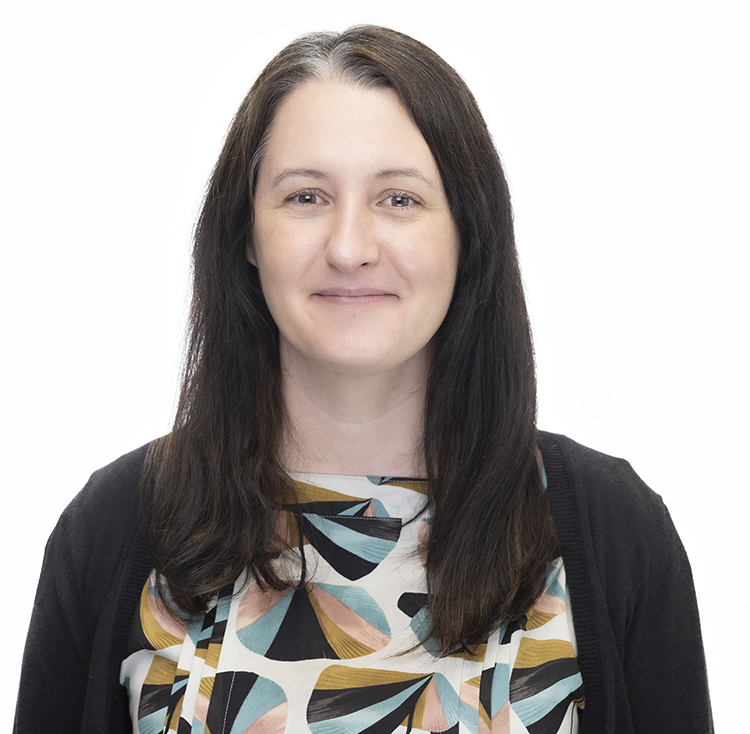
Sarah is an NHMRC Emerging Leadership Fellow and a Certified Practising Speech Pathologist. Her research interests include communication disability in ageing and enabling and measuring meaningful change in post-stroke (language/communication impairment following stroke) aphasia. She uses qualitative and mixed methods to explore the lived experience of communication disability, and works in partnership with consumers and clinicians to co-produce clinical interventions and methodological approaches that support the production of meaningful outcomes.
Areas of interest:
- Communication disability in ageing
- Aphasia rehabilitation
- Core Outcome Set Development
- Consensus techniques and stakeholder engagement
- Co-design
- Outcome measurement
- Aged care
Dr Sophie Andrews

Dr Sophie Andrews is a Senior Research Fellow and Lead of the Healthy Brain Ageing Research Program in the Thompson Institute. She is a cognitive neuroscientist and registered clinical neuropsychologist, and my research is focused on how non-pharmacological approaches (like lifestyle or non-invasive brain stimulation) can improve brain and cognitive health and reduce risk for dementia, and how best to support people to change their lifestyle habits. The Healthy Brain Ageing research program uses cutting-edge neuroscience techniques, including MRI, EEG and TMS, to investigate the effectiveness of multi-modal lifestyle interventions for dementia risk reduction and brain health in older people.
Areas of interest:
- Dementia risk reduction
- Healthy lifestyle for healthy brain ageing
- Cognitive neuroscience of healthy brain ageing
- Non-invasive brain stimulation approaches to enhancing neuroplasticity and cognition in ageing and dementia
Associate Professor Steven Zuryn
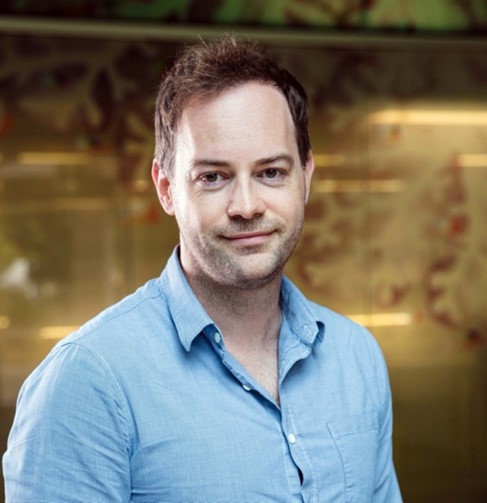
A/Prof Steven Zuryn is a molecular geneticist within the Queensland Brain Institute, The University of Queensland. After training as a PhD in genetics, he undertook postdoctoral in epigenetics at the Institut Génétique Biologie Moléculaire Cellulaire (IGBMC) in Strasbourg, France. He now leads an international and diverse team of postdoctoral, PhD, Honours, and undergraduate investigators studying epigenetics and mitochondrial biology. His laboratory’s work focuses on the role and impact of mitochondrial dysfunction in neurodegenerative diseases and is particularly fascinated with mutations that accumulate within the mitochondria’s own genome during ageing. His research has been published in the high-profile journals Science, Nature Cell Biology, and Nature Communications and has appeared in multiple mainstream media outlets. Steven is passionate about communicating the critical importance of fundamental scientific research as a long-term human endeavour.
Areas of interest:
- Mitochondria
- Mitochondrial genome
- Epigenetics
- Small RNAs
- Methylation
- Metabolism
- Ageing
- Microbiome
- Neurodegenerative disease
- Parkinson's disease
- Alzheimer's disease
- MND
Dr Tara Walker
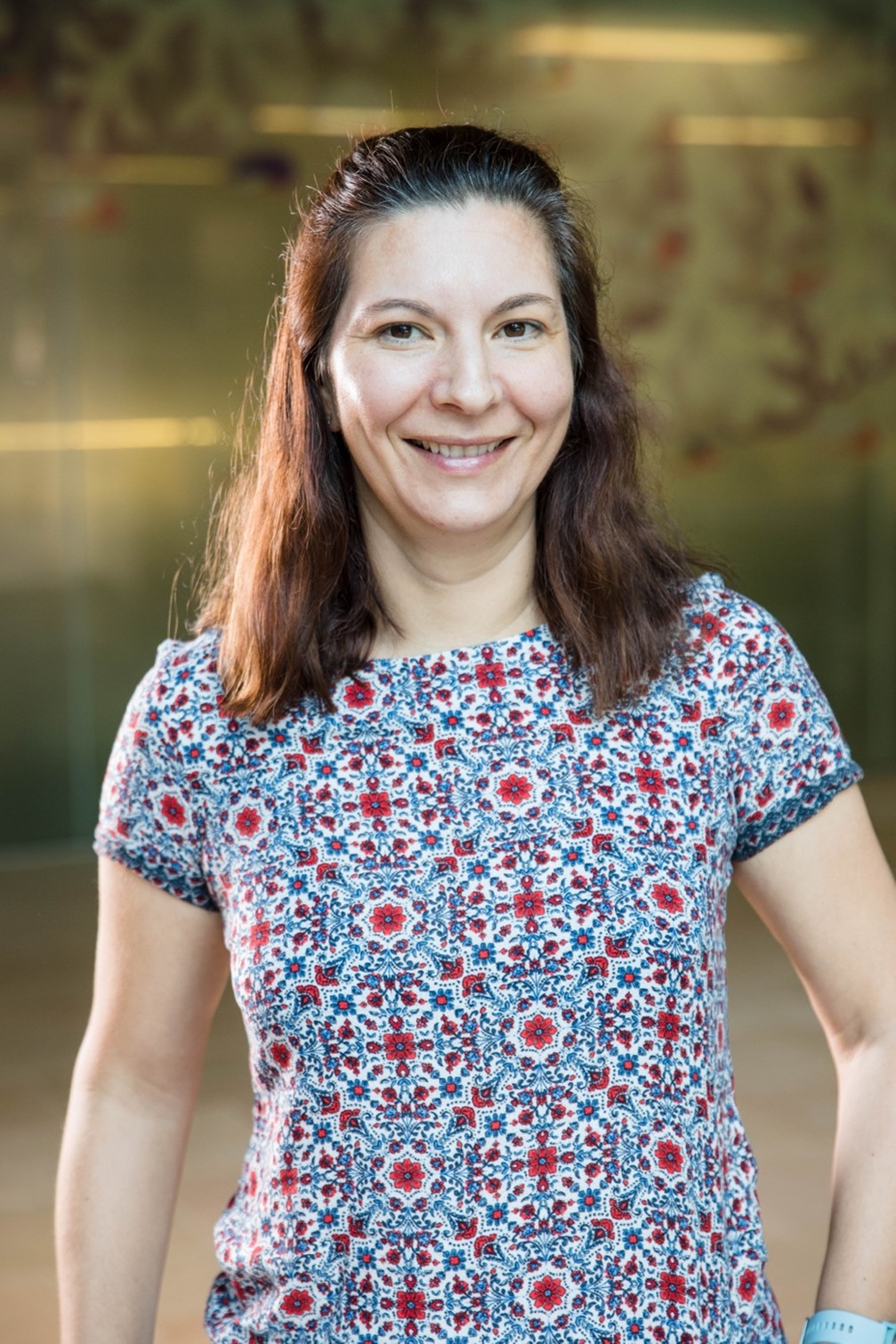
Dr Tara Walker studied Biotechnology as an undergraduate at the Queensland University of Technology (Brisbane, Australia), before carrying out her PhD in the field of Plant Biotechnology. In 2003 she made the transition to neuroscience, joining the Queensland Brain Institute (QBI) as a post-doc in the group of Professor Perry Bartlett. In 2010, she joined the group of Professor Gerd Kempermann at the Center for Regenerative Therapies in Dresden, Germany, where she was awarded a prestigious Marie Curie International Incoming Fellowship in 2011. In July 2018 she returned to QBI to lead a laboratory, where she is currently investigating the mechanisms governing the lifelong production of neurons in the adult brain (adult neurogenesis). The overarching goal the research in the Walker lab is to identify the mechanism by which physical exercise increases neurogenesis, and to apply this knowledge to identify novel strategies to reverse the neuronal loss that is associated with physiological ageing, stroke and Alzheimer’s disease.
Areas of interest:
- Adult neurogenesis
- Neurodegeneration
- Stroke
- Alzheimer's disease
- Physical exercise
- Neuroimmunology
Dr Theresa Scott

I am currently Senior Lecturer in Clinical Geropsychology in the School of Psychology, and former National Health and Medical Research Council (NHMRC) Dementia Research Fellow in the Faculty of Medicine, at The University of Queensland.
I am Scientific Panel Member of Dementia Australia’s Research Foundation (providing scientific input into the competitive grants rounds) and Queensland Executive Member of the Australian Association of Gerontology (Australia's peak national body linking professionals working across the multidisciplinary fields of ageing). My NHMRC fellowship translated a driving cessation intervention to enhance wellbeing and improve community mobility for people living with young- and late-onset dementia. In addition, I led a team of researchers (and consumers and health professionals) in a 5-year NHMRC Boosting Dementia Research Grant project that employed a cluster randomized controlled trial (cRCT) design with embedded mixed methods to evaluate a telehealth approach to delivery of the driving cessation intervention for persons living with dementia and their care partners, Australia-wide [Grant 1139400, 2020-2025].
I currently lead a team of researchers, supported by Medical Research Future Fund [MRFF; 2023-2026] to co-develop and deliver critical resources, including an online video-based driver safety assessment, to primary care physicians to manage driving and driving cessation with their patients with dementia.
I have expertise in designing and implementing randomised controlled trials, skills in qualitative and quantitative methods, pragmatic trials, and in evaluation research. My strengths are in research co-design, methodologies and analyses with older and vulnerable populations, I have longstanding collaborations with consumer groups and advocates.
Areas of interest:
- Functional outcomes for older people and older people with cognitive decline and their care partners
- Community mobility
- Driving
- Dementia stigma and ageism
- Dementia education
- Therapeutic environments for people with dementia
Professor Tracy Comans
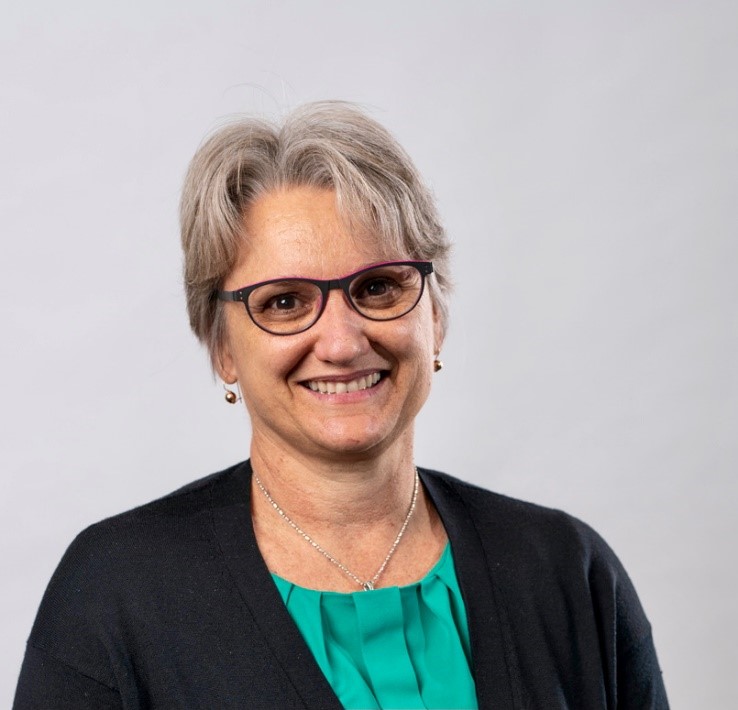
Prof Tracy Comans is a UQ Amplify Fellow in the Centre for Health Services Research, University of Queensland and an adjunct Research Fellow in Metro North Hospital and Health Service. Her research involves applying economic models to investigate the cost-effectiveness of health care interventions and leading and developing health services research focussing on older people, allied health and rehabilitation services. She has degrees in physiotherapy and economics (Hons) with a clinical background as a physiotherapist with special interests in aged care, dementia and rehabilitation.
Associate Professor Victor Anggono
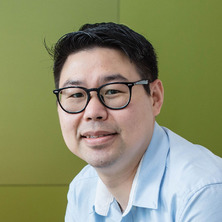
Victor Anggono received his PhD (2017) on the role of dynamin 1 phosphorylation in presynaptic vesicle recycling with Prof. Phillip Robinson from the University of Sydney. Supported by an Australian National and Health Medical Research Council (NHMRC) CJ Martin Fellowship and an International Human Frontiers Science Program (HFSP) Long-term Fellowship, Victor undertook his postdoctoral training with Prof. Richard Huganir at Johns Hopkins University, USA, investigating the molecular mechanisms of postsynaptic glutamate receptor trafficking. In 2012, Victor returned to Australia and established the Synaptic Neurobiology Laboratory at the Queensland Brain Institute, The University of Queensland. In 2022, Victor was promoted to Principal Research Fellow and subsequently received an Australian Research Council (ARC) Future Fellowship (2023 – 2026). Victor’s current research aims to unravel the cellular and molecular mechanisms of neuronal communication to understand physiological phenomena such as synaptic plasticity, learning, memory, behaviour and disease.
Professor Wendy Moyle
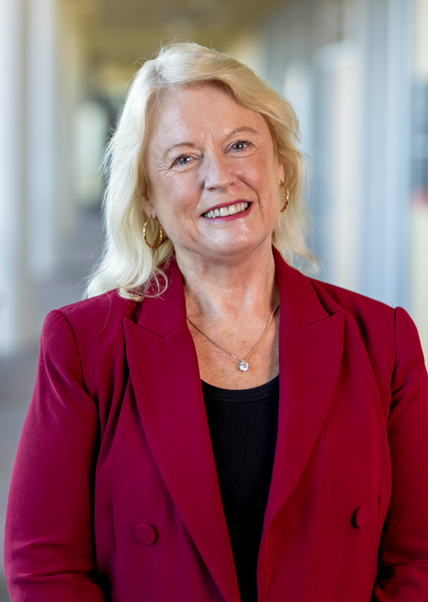 Professor Wendy Moyle is Program Director, Healthcare Practice and Survivorship Program (4 research groups and a Centre of Research Excellence) in the Menzies Health Institute Queensland, Griffith University. Her research expertise is in care of older people and in particular older people with dementia, depression, and delirium. Her research focuses on finding evidence for best practice in care of older people with dementia, improving quality of life, and finding evidence for managing behavioural and psychological symptoms of dementia (BPSD). She has a keen interest in technologies, and, within a social robotics laboratory, she develops and evaluates assistive technologies and social robots. She has published over 277 manuscripts and has an h-index of 40 (Scopus).
Professor Wendy Moyle is Program Director, Healthcare Practice and Survivorship Program (4 research groups and a Centre of Research Excellence) in the Menzies Health Institute Queensland, Griffith University. Her research expertise is in care of older people and in particular older people with dementia, depression, and delirium. Her research focuses on finding evidence for best practice in care of older people with dementia, improving quality of life, and finding evidence for managing behavioural and psychological symptoms of dementia (BPSD). She has a keen interest in technologies, and, within a social robotics laboratory, she develops and evaluates assistive technologies and social robots. She has published over 277 manuscripts and has an h-index of 40 (Scopus).
She has received several awards in recognition of her teaching, supervision of higher degree students, and research. These include two International Women’s Day Awards (2016), an International Nurse Researcher Hall of Fame (Sigma Theta Tau) for her research (2019), two international awards from Robohub (2019, 30 Women in Robotics you need to know about) and Analytics Insight (2020, 50 most renowned Women in robotics), and the VCs Research Excellence Award in Research Supervision (2022). Her research features widely in the media with, to date, 15 television appearances, and over 142 radio and social media interviews.
Areas of interest:
- Dementia
- Depression
- Delirium
- Development and evaluation of technologies to improve BPSD
Dr Sabrina Lenzen
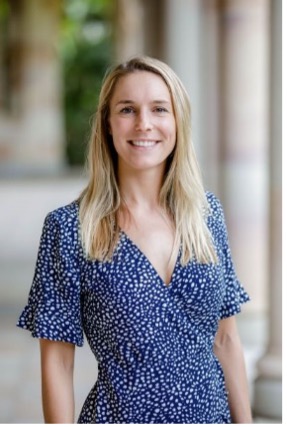
I’m a Research Fellow at the Centre for the Business and Economics of Health at The University of Queensland. My expertise is in the economics of health and ageing, with a special focus on dementia and cognitive decline. I’m passionate about improving the lives of older people by studying new health needs in older populations to plan for future healthcare requirements. This research also involves analysing the impact of lifestyle factors on health and wellbeing.
My current research aims to improve knowledge about healthy ageing trends and the likely future health needs of the Australian population. As part of an Australian Research Council grant, I’m investigating trends in the number and percentage of individuals who report health issues in different age groups. In view of an ageing population, I’m studying how these figures change between generations. I’ll use these findings to model health by age group over the next 30 years, which is critical for planning future healthcare capacity.
Areas of interest
- Ageing
- Dementia
- Physical Activity
- Economics
- Applied Economics
- Longitudinal Analysis
- Panel Data
